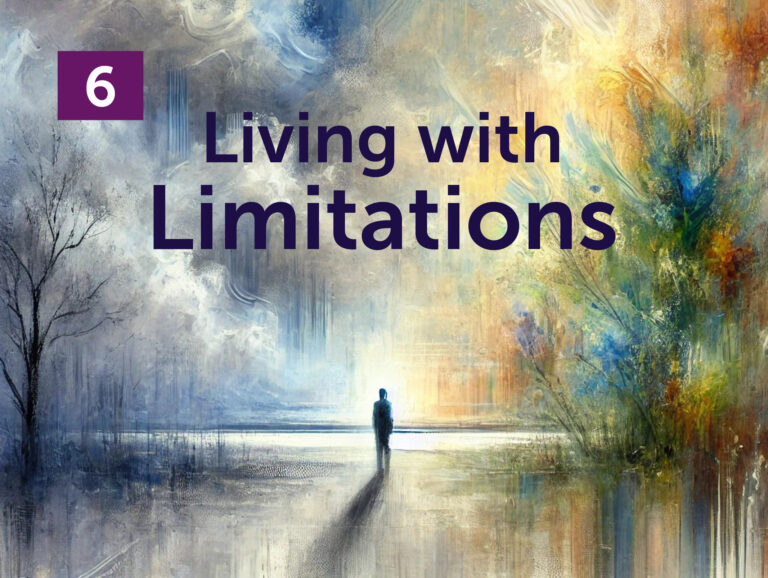Simon
Hi Rachel, the reason we wanted to talk to you is because, whilst you weren’t technically born with a disability, you were born massively premature and you had significant problems staying alive, and it was the treatment in the first days of your life that caused you to have a physical disability. You’re someone that has lived with disability as long as you can remember. Since I’m your Dad, I’ve seen the way that you’ve changed in how you’ve processed that over time. I’d love to hear you talk about what you remember about being a child and how you reflected on having a disability, how it affected you – or maybe how you didn’t want it to affect you?
Rachel
It was very obvious to me that I couldn’t do everything that my peers could do and I was very – not necessarily in primary school, but in high school – I was very fearful of being bullied, and being different, and being in a space where you have to do the exact same thing as everybody else. It was very difficult.
Simon
Can you just describe to us briefly how that difference expressed itself? So someone looking at you in the school corridor, what would they have noticed?
Rachel
So I have diplegic cerebral palsy. CP is the most common physical disability in children in the UK. Diplegic cerebral palsy means it affects both of my legs. so you can have Hemiplegic Cerebral Palsy, which is one arm and one leg or quadriplegic, which is all four of your limbs. So it’s just my legs are affected. Essentially I had a bleed on the brain when I was born that created a level of spasticity in my legs, which means that I can’t fully elongate my legs. Walking in the school corridor, what people would have seen is my feet turned inwards. My knees would knock together. I would walk in quite a crouched way, like I had a crouched gait when I was walking, and so it’s quite obvious that I didn’t walk in the same way that everybody else walked.
Simon
And when you arrived at high school, you were still using something that most people would have called a Zimmer frame.
Rachel
Yeah, I was still using the walking frame. That didn’t last very long for quite obvious reasons. It was bright blue and I had stuck loads of silver stars on it. And it was very much like, ‘Ohh, this is an attention grabber.’ I think luckily the primary school I was in was lovely, and of course there were instances where people said things and luckily the friends I had didn’t really see the difference, which I think is quite incredible really, for a bunch of 8 year olds, 9 year olds. They understood that I couldn’t run around with them, but there were plenty of other things I could do.
We talked about disability when I was younger and I think, amazingly, my parents wanted me to feel like my siblings and they wanted me to feel like there wasn’t anything wrong with me and that I could do what my siblings could do. That’s a lovely narrative, and it’s lovely to exist in a household where I was encouraged to try lots and lots of things. I think as I’ve got older, I’ve recognised that maybe we didn’t really talk about the reality of it enough. I kind of now sit with the sense, as an adult, that my parents did have to treat me differently and a lot of my siblings’ childhood also involved me going to the hospital and the attention that they gave us did have to be different. But I don’t know if we acknowledged it enough that there were plenty of things I couldn’t do, and I think we’re so afraid of talking about limitation with children because you don’t want to knock their self-esteem and you want to encourage them to do things. So I felt like I had to figure it out by myself.
Simon
I’m feeling stuff because obviously parenting is something that is rarely talked about and there was not a person in either of our close families who had a physical disability, so we didn’t even have people telling us what it was going to be like. In retrospect, there was also a Christian element to it in that we wanted to have faith for the best outcome. We wanted to hope for the best.
We were also led by you and you were very clear that you didn’t want to be identified by your disability. I remember when we were looking around high schools I took you to a school that was built specifically to cater for physically disabled children alongside able bodied children. But when we got there we happened to sneak into the school during lunch time and all the kids with wheelchairs were on their own separate table. And, just on the basis of that separation, you said immediately, ‘Well, I’m not going here.’
Rachel
Yeah, I remember that so vividly. I think the way I relate to my disability has changed, but I still believe in ‘person first’ language, that we should say, ‘That is a person with a disability,’ rather than ‘A disabled person’. And that very, very apparent segregation of, ‘We are a school that caters to everybody,’ yet all the kids in wheelchairs were on their own around the table. Nobody was speaking to them. And I remember just looking at both of you and being like, ‘We’re not doing this.’
to be continued…
Do you have any comments or questions? You can contact us here: hello@northumbrian.org


